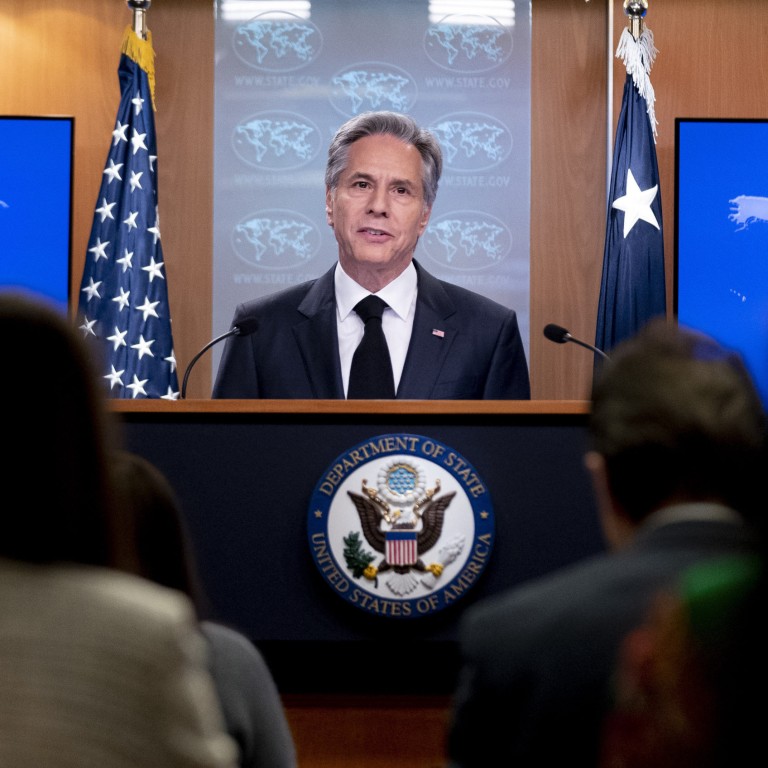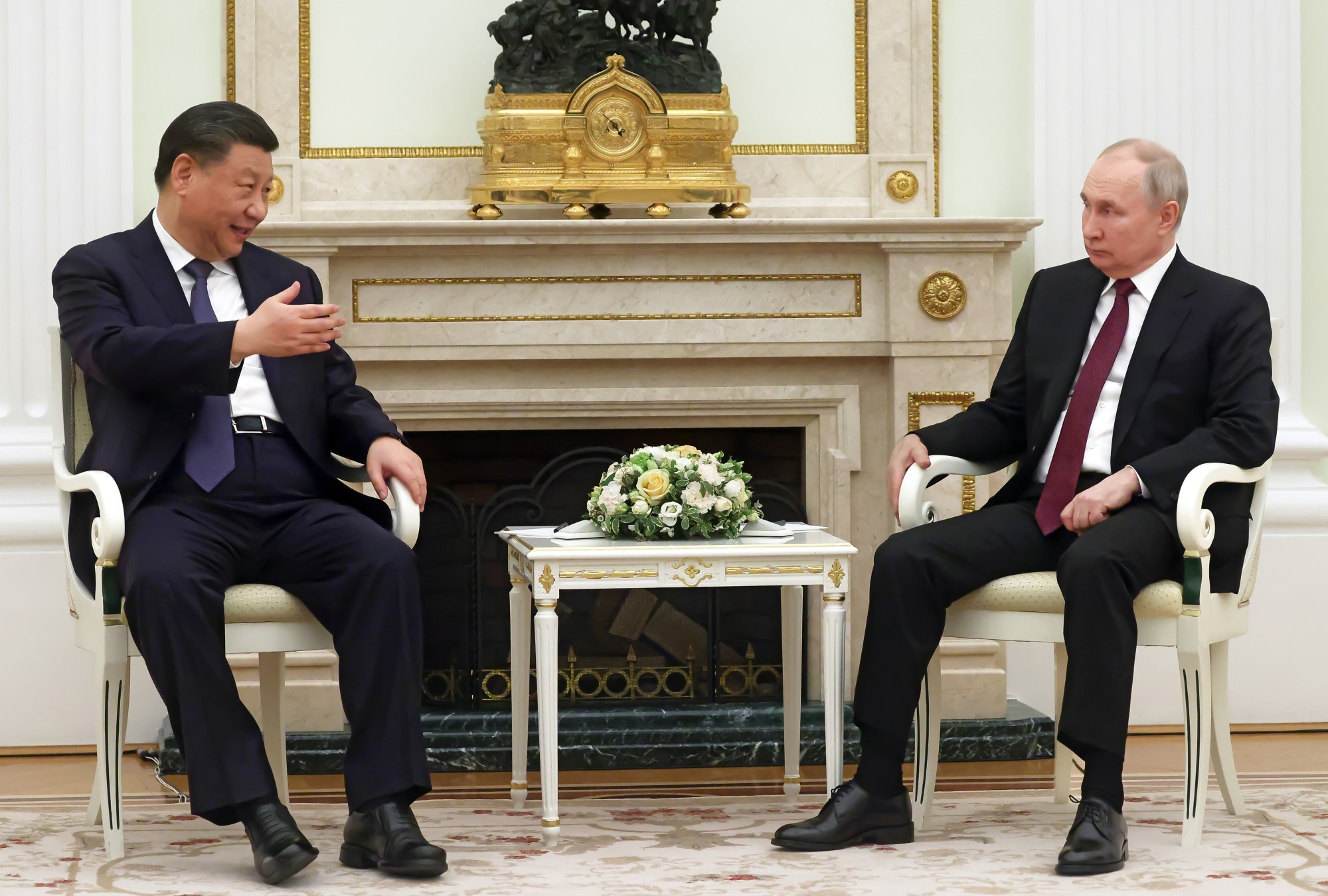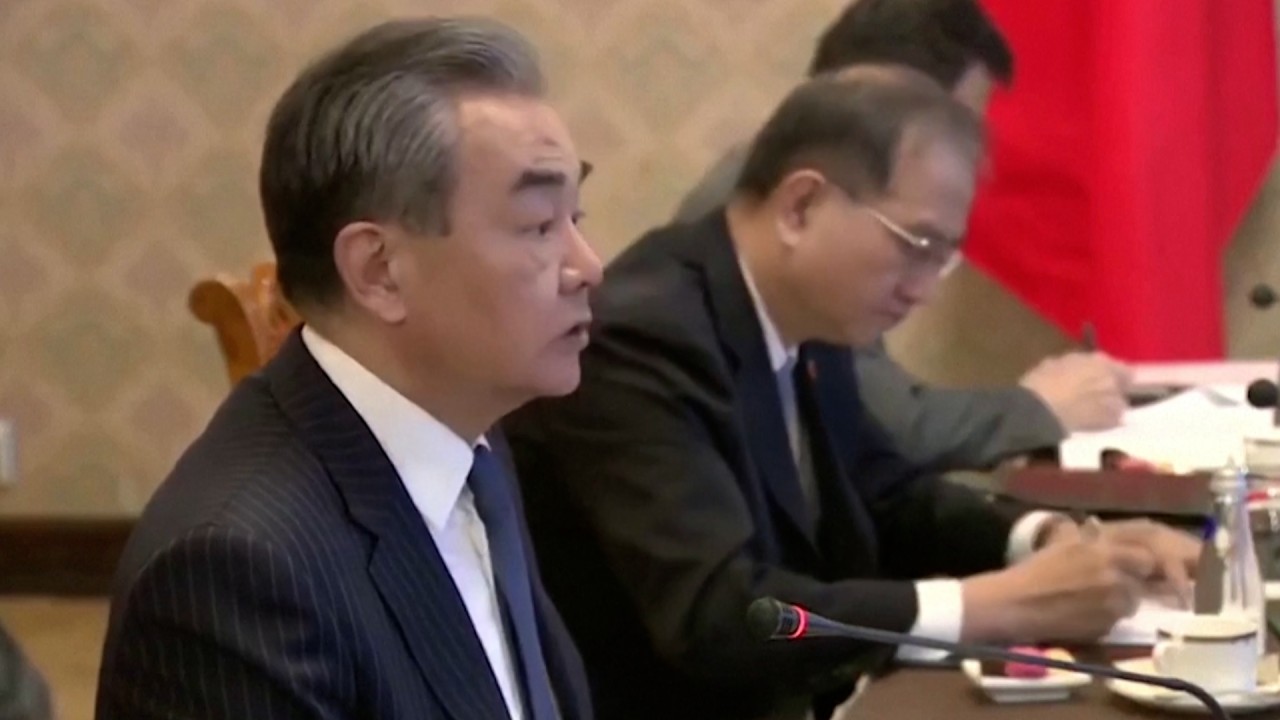
Antony Blinken says Xi Jinping’s trip shows Beijing ‘feels no responsibility to hold the Kremlin accountable’
- The US secretary of state calls on Xi to urge Moscow to pull back its forces, and to work with Ukraine on a peace plan
- Remarks come at release of State Department human rights review, which includes allegations of abuses against Uygurs, Tibetans and Hongkongers
US Secretary of State Antony Blinken criticised Chinese President Xi Jinping on Monday for providing what he termed diplomatic cover for Russian President Vladimir Putin this week.
Blinken discussed the Xi-Putin meeting during a press briefing for the release of the State Department’s annual report of human rights around the world.
“The world should not be fooled by any tactical move by Russia – supported by China or any other country – to freeze the war on its own terms,” he said.

China has called for a political settlement to the war but its 12-point plan does not acknowledge Russia’s violation of Ukrainian sovereignty.
Any plan seeking a ceasefire that did not uphold Ukraine’s sovereignty and territorial integrity, Blinken said, would be “a stalling tactic at best, or is merely seeking to facilitate an unjust outcome”.
“Calling for a ceasefire that does not include the removal of Russian forces from Ukrainian territory would effectively be supporting the ratification of Russian conquest,” he added.
Chinese foreign ministry spokesman Wang Wenbin said on Monday that “President Xi’s visit is a trip for friendship, a trip for cooperation and a trip for peace”.
Wang added that the ICC should “respect the jurisdictional immunity of a head of state” and “not engage in politicisation or using double standards”.
The State Department report, which assesses some 200 countries and territories based on standards enshrined in international human rights agreements, included as it has for several decades a catalogue of China’s alleged violations.
[The US should] stop pointing fingers at other countries’ human rights and do something useful to improve its own human rights situation
Beijing, Blinken said, “continues its abuses including genocide and crimes against humanity against Uygurs, repression of Tibetans, crackdown on basic rights in Hong Kong, and targeting of individuals on the mainland for exercising fundamental freedoms”.
In addition to naming China and Russia, Blinken called out Iran, Afghanistan, Myanmar, Cuba and Nicaragua in his address.
“We continue to see a backsliding in human rights conditions, the closing of civic space, disrespect for fundamental human dignity,” he added.
As in recent years, the report devoted some of its longest sections to China, particularly to the situation of Uygurs and other minorities in Xinjiang.
It also critiqued transnational repression of diaspora Chinese including Hongkongers; China’s stringent zero-Covid policies; censorship of anti-Russia and pro-Nato content; the use of Covid-19 tracking apps for non-public health purposes; and harassment of domestic and international human rights groups.
Ukraine planning big attack to cut off Wagner forces, mercenary chief warns
Earlier on Monday, China published a report on the state of US democracy, highlighting the US’s handling of abortion rights, gun violence and its penchant for dividing the world into “democracies” and “autocracies”.
On Monday, Blinken reiterated the US stance: that what distinguished the US and other democracies is the willingness “to acknowledge our own shortcomings – not to sweep them under the rug, or pretend they don’t exist”.
Liu Pengyu, a spokesman for the Chinese embassy in Washington, said that Blinken’s statement about human rights in China was “full of political lies and ideological bias”.
“What the US should do is immediately stop pointing fingers at other countries’ human rights and do something useful to improve its own human rights situation and the healthy development of the international human rights cause,” he said.
At a session of the United Nation’s Human Rights Council this year, China spoke on behalf of what it said was more than 70 countries, declaring that the “principle of universality of human rights needs to be married with specific national realities”, Wang of the Chinese foreign ministry said.
Both China’s position on Russia’s war in Ukraine and its domestic human rights situation remain sticking points in the US-China relationship.
Further complicating the Biden administration’s desire to de-escalate tensions with Beijing, Congress is also pushing to renew attention to human rights abuses against the Uygurs, with a hearing scheduled Thursday evening on the topic.


